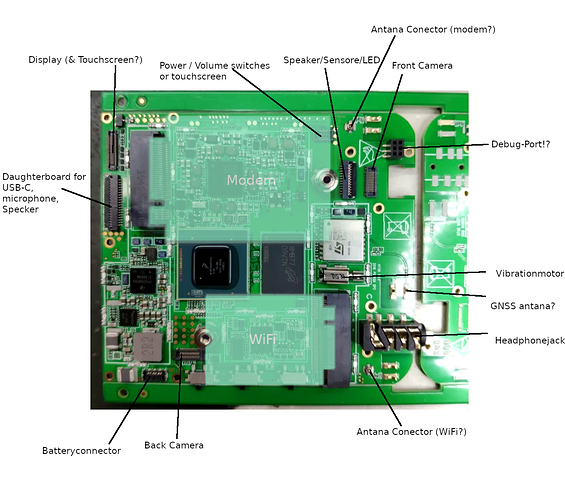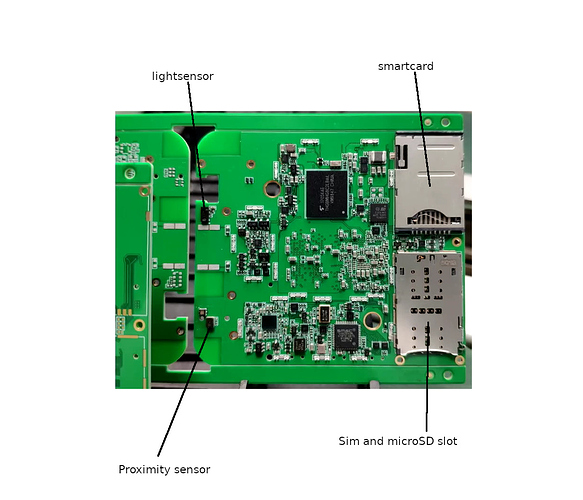I still not 100% sure which side is the front side. I also assume that the m.2 cards need to be on the side which would be open. But some phone get opened from the screen side. So if the case design is more like many iphones where 2 screws on the bottom secure the screen and after removing them the screen can be lifted up the board could be the other way around and would align with the day 16 video.
I think the advantage of such a design is that no inner frame is needed where all the board and the screen are fixed on where the back cover is lifted. So they might have chosen this design. Thought i consider replacing a battery on such a desing more complex as the display cables probable need to be remove an are kinda fragile. So for ease of battery replacement i would hope for back cover removal first and not screen first.
I made this with my guessing what the connectors are might for (assuming back cover removal first) . What do you think?
Edit:
I had another thought, which argues for a screen first opening. All renderings are showing the back cover as one part ( including the sides). But as all the buttons and jacks are kind of attached the case this would made it really hard to remove the back without also having lot of buttons an connectors to fiddle around. And thinking of this i haven’t seen a case design where the back is open when it is one part. Back opened phones have separate sides and a flat backplates most of the time i think. But i also think that the cover renders are the more uncertain information. So the rendering might miss a separation line, like its missing screws.
Edit2: other side

